DjangoPowerDNS Save
Project README
DjangoPowerDNS
DjangoPowerDNS is a new PowerDNS webinterface written in Python and powered by Django.
Features
- Add/Edit/Remove DNS records easily
- Use the REST-API to change DNS records within your application
- Add users to certain domains to allow them editing DNS records
Tech
DjangoPowerDNS uses awesome open source tools!
Screenshots
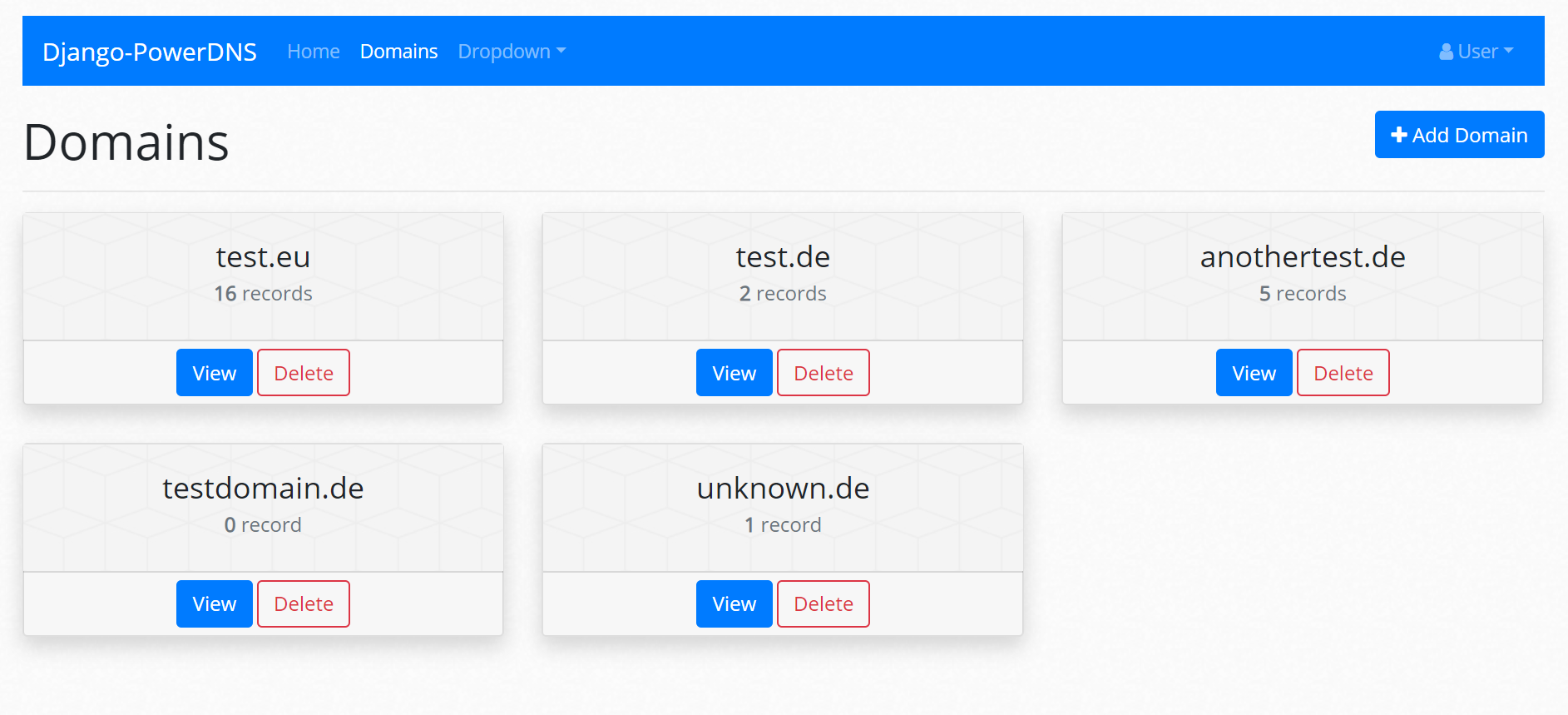 |
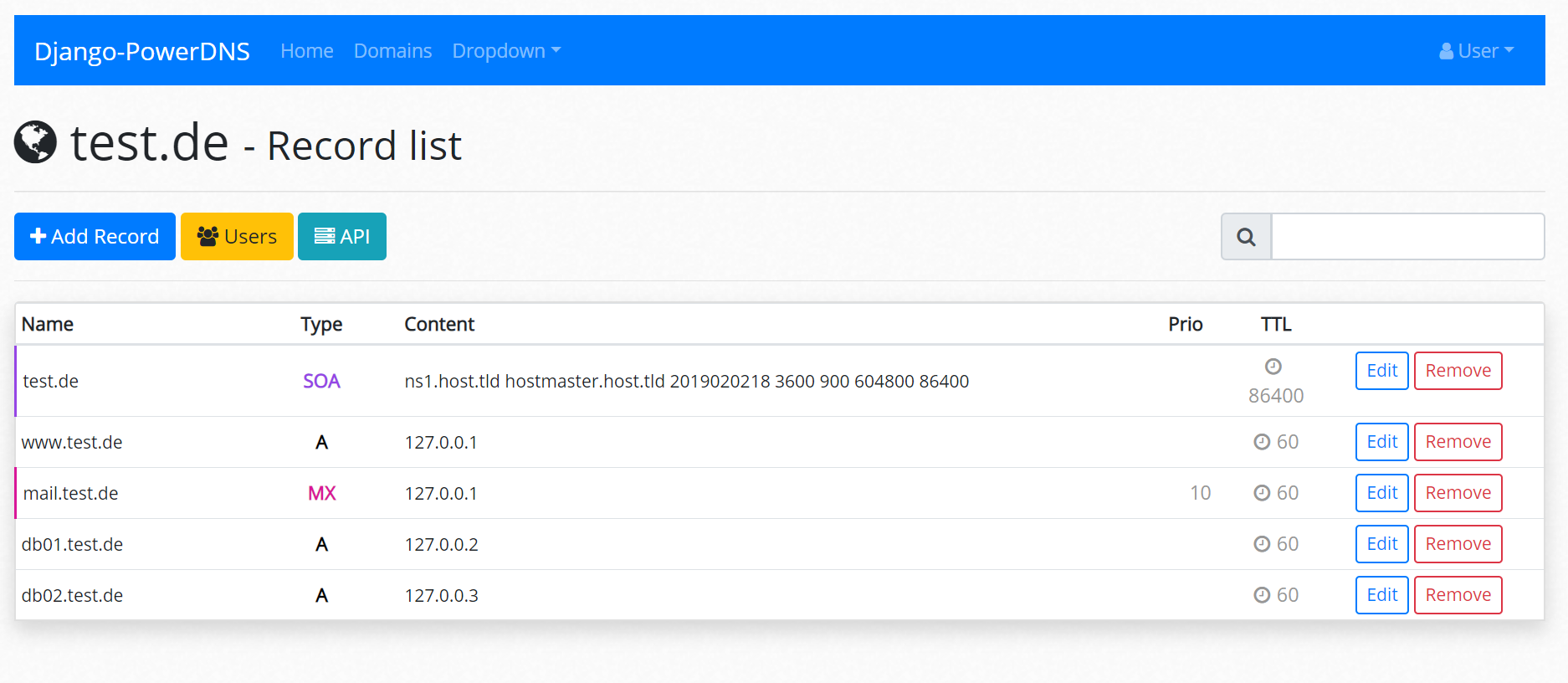 |
 |
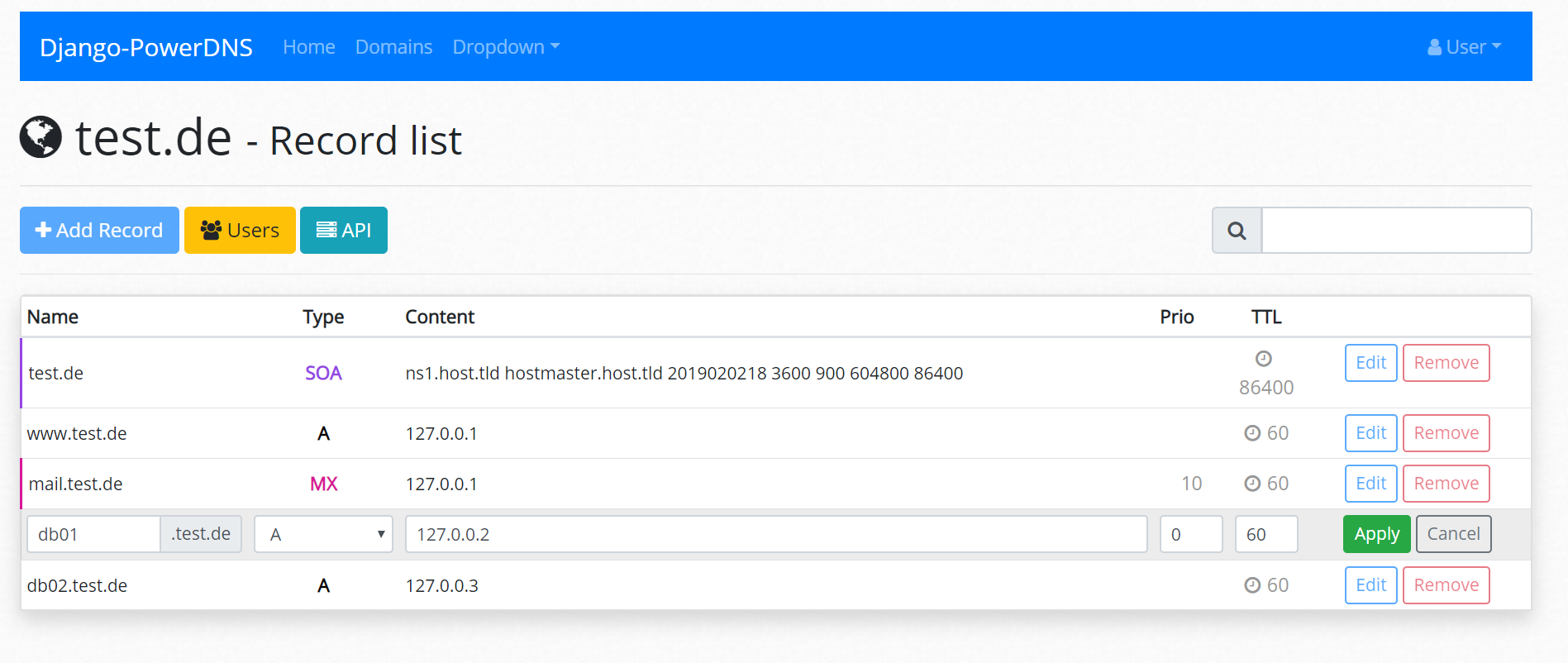 |
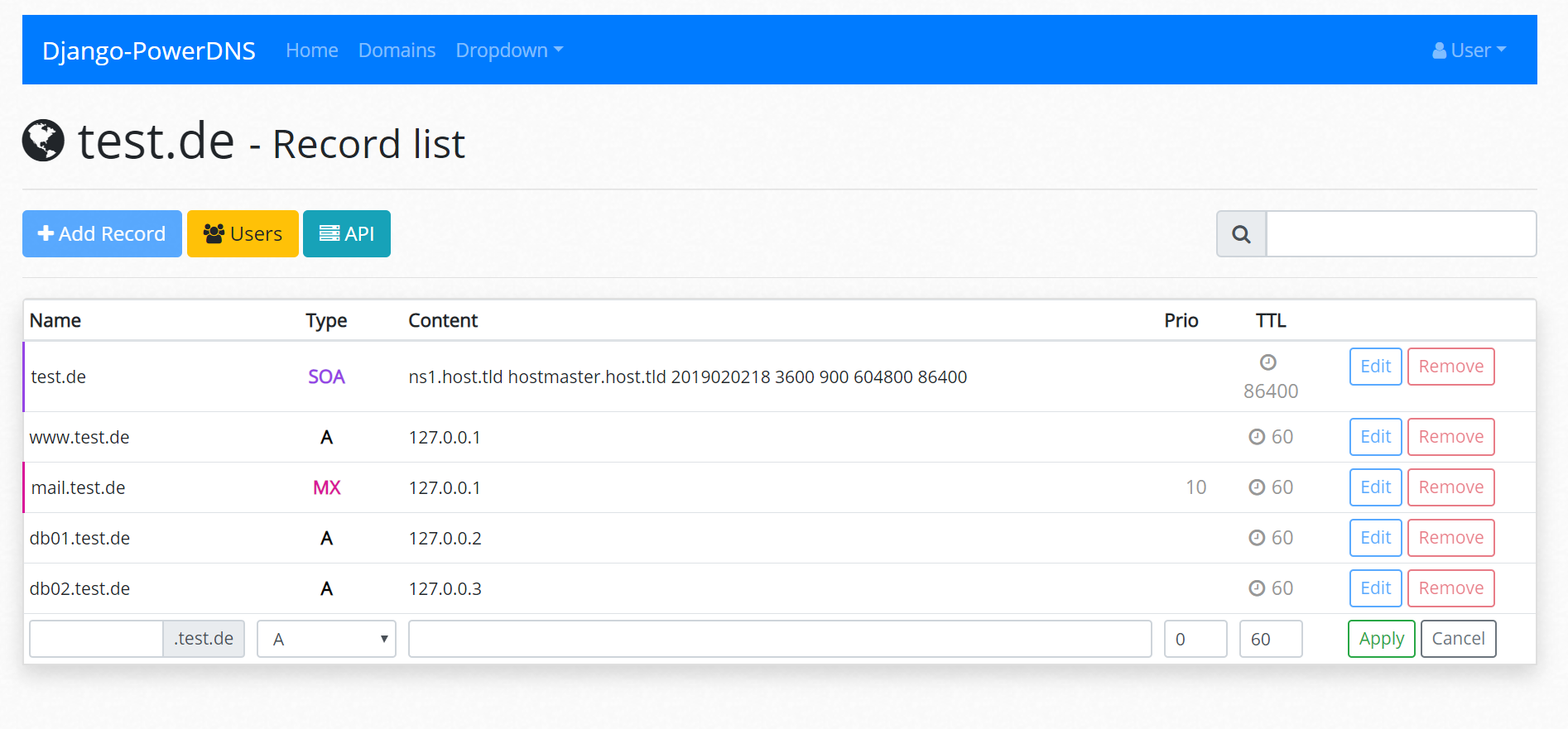 |
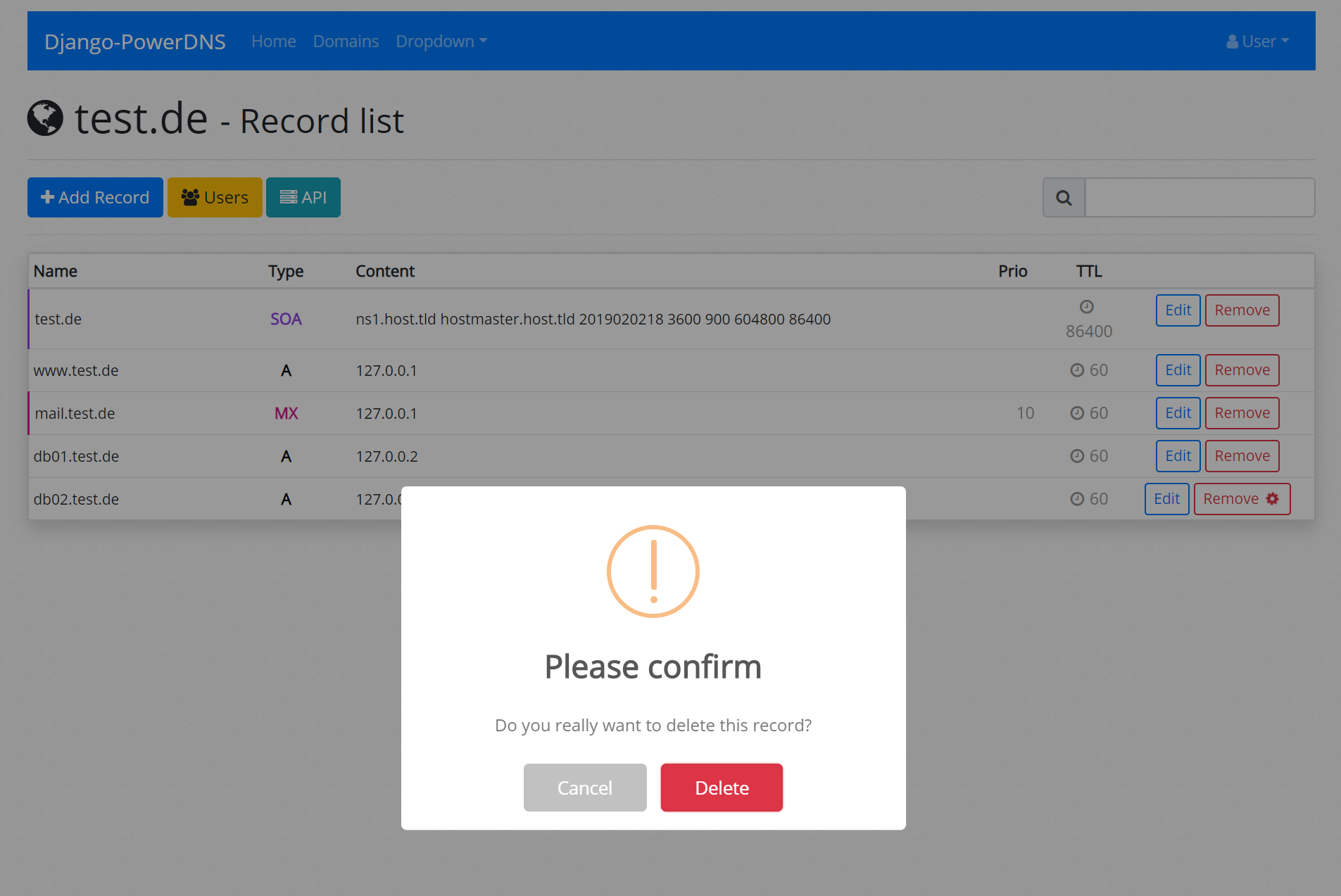 |
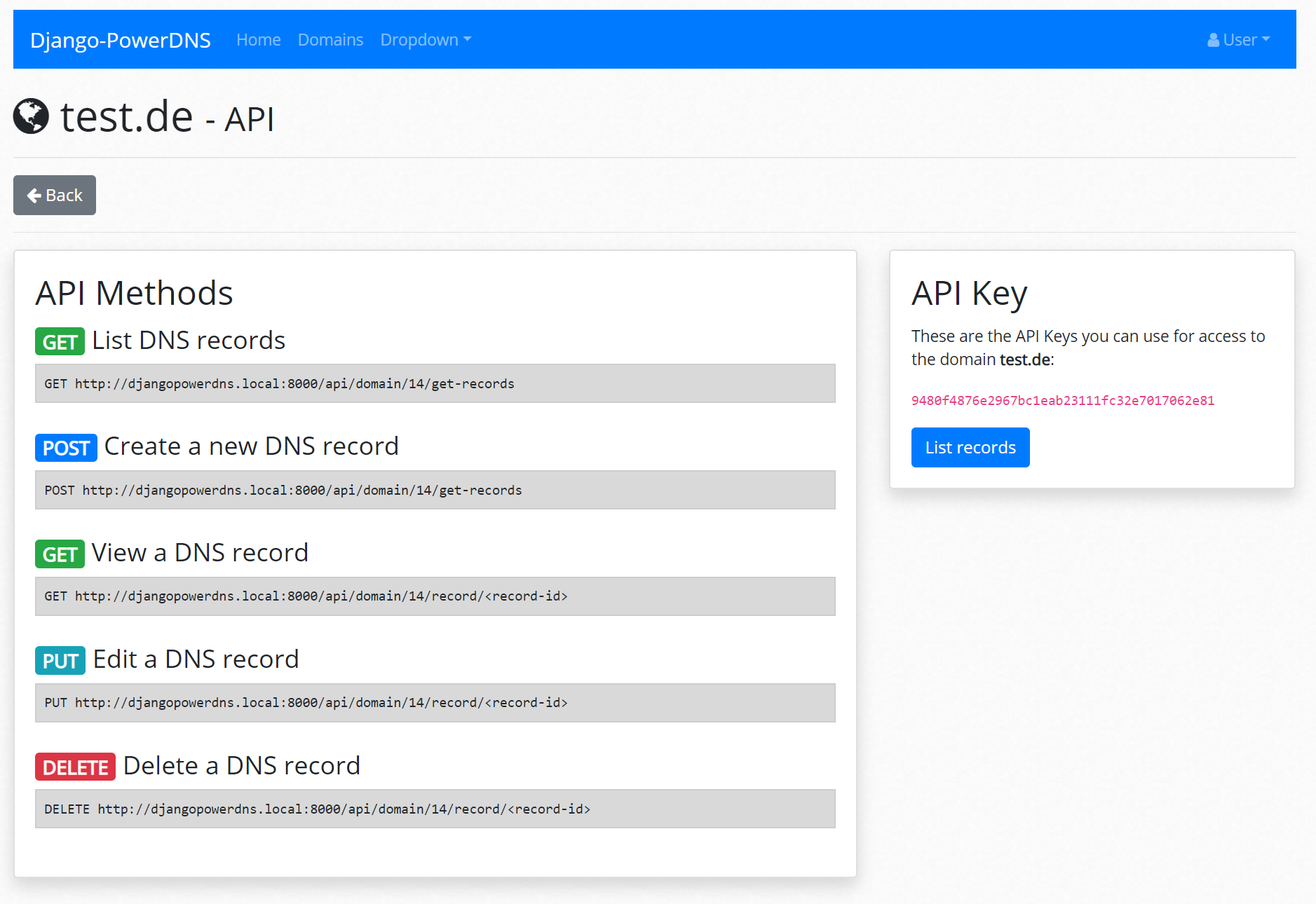 |
|
Installation
Install the following dependencies:
On Debian based Systems:
$ apt update
$ apt install python2.7
$ apt install python-pip
$ apt install git
$ apt install uwsgi
$ apt install python-mysqldb
$ apt install mysql-client
For mariadb:
$ apt install libmariadbclient-dev
On RHEL based Systems:
$ yum update -y
$ yum install -y python
$ yum install -y python-pip
$ yum install -y git
$ yum install -y uwsgi
$ yum install -y MySQL-python
$ yum install -y python-devel
$ yum install -y mariadb-devel
$ yum install libxslt-devel libxml2-devel
Clone the repository
$ git clone https://github.com/McLive/DjangoPowerDNS.git
Install and setup the virtualenv
$ pip install virtualenv
$ virtualenv venv
$ source venv/bin/activate
Install the python requirements
$ pip install -r requirements.txt
- Rename
DjangoPowerDNS/settings.py.disttoDjangoPowerDNS/settings.py - Change MySQL settings and secret key in
DjangoPowerDNS/settings.py
Apply migrations
$ python manage.py migrate
Create a superuser
$ python manage.py createsuperuser
Todos
- Complete README.md :)
- Please send feature requests
Open Source Agenda is not affiliated with "DjangoPowerDNS" Project. README Source: McLive/DjangoPowerDNS
Stars
26
Open Issues
17
Last Commit
2 years ago
Repository
License
